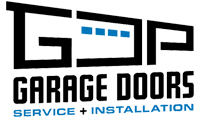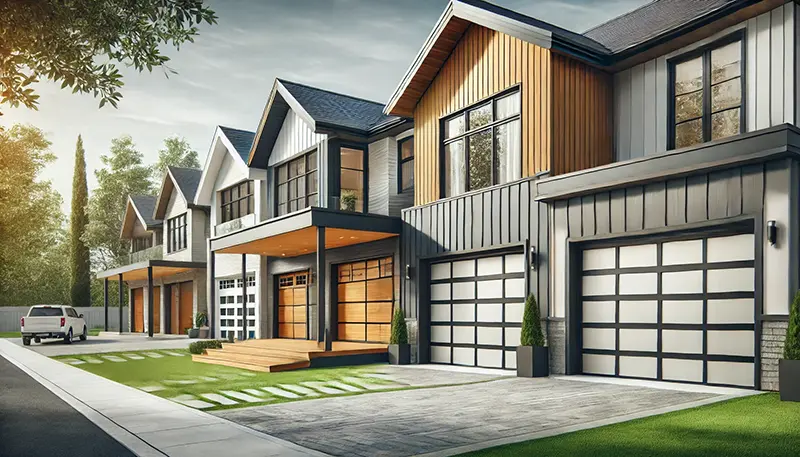Choosing the perfect garage door for your home is an important decision. It’s not just about functionality—it’s also about enhancing your home’s curb appeal, boosting security, and adding value. With so many options available, finding the right garage door can feel overwhelming. This guide will help you make an informed decision that suits your needs, style, and budget.
Understand Your Needs
Before diving into the world of garage doors, take some time to consider what you truly need. Ask yourself:
- What’s my budget? This will narrow down your options and help you focus on what you can afford.
- What’s the primary purpose of my garage? If you use it as a workshop or living space, insulation may be a priority.
- What style complements my home? The garage door should enhance your home’s architecture and design.
- How often do I use my garage? Heavy use may require a durable material or an upgraded opener.
Knowing the answers to these questions will simplify your search and keep you focused.
Choose the Right Material
Garage doors come in a variety of materials, each with its own benefits and drawbacks. The right choice depends on your priorities, such as durability, maintenance, and aesthetics.
- Steel: A popular option due to its durability and low maintenance. Steel doors come in various designs and colors, making them versatile. However, they can dent and may require insulation to improve energy efficiency.
- Wood: Offers timeless beauty and warmth, making it a great choice for traditional or rustic homes. Wood requires regular maintenance, such as staining or painting, to protect it from the elements.
- Aluminum: Lightweight and resistant to rust, aluminum is ideal for coastal areas. It’s less durable than steel and can dent easily, but it offers modern, sleek designs.
- Fiberglass: A durable and lightweight option that mimics the look of wood without the upkeep. Fiberglass is resistant to moisture but may fade or crack over time.
- Glass and Aluminum Combo: Provides a contemporary, high-end look with plenty of natural light. These doors are perfect for modern homes but may require more upkeep to keep the glass clean and scratch-free.
Consider Insulation
Insulation is a key factor, especially if your garage is attached to your home or used for more than storage. Insulated doors provide several benefits:
- Energy Efficiency: Keeps your garage warmer in the winter and cooler in the summer, reducing energy costs.
- Noise Reduction: Dampens sounds from outside and minimizes the noise of the door itself.
- Durability: Insulated doors are often sturdier than non-insulated ones, making them more resistant to dents.
Look for doors with a higher R-value (a measure of insulation effectiveness) for better thermal performance.
Think About Style
Your garage door is a significant part of your home’s exterior, so style matters. Match the door to your home’s architecture for a cohesive look.
- Traditional Homes: Carriage-style doors with decorative hardware are a classic choice.
- Modern Homes: Opt for sleek, minimalist designs with clean lines and bold colors.
- Colonial or Victorian Homes: Panel designs with intricate details can complement historical aesthetics.
- Rustic or Farmhouse Homes: Wooden or wood-look doors with a weathered finish can add charm and character.
Experiment with colors, window styles, and hardware to find a design that enhances your home’s personality.
Evaluate Safety and Security Features
A garage door should provide safety and peace of mind. Look for these features:
- Auto-Reverse Mechanism: Ensures the door stops and reverses if it detects an obstruction, preventing accidents.
- Rolling Code Technology: Changes the access code each time the remote is used, reducing the risk of break-ins.
- Manual Release: Allows you to open the door manually in case of power outages or system failures.
Investing in a quality opener with advanced security features can further protect your home.
Prioritize Durability and Maintenance
The lifespan of your garage door depends on the material and maintenance. Consider these factors:
- Steel and Aluminum: Require minimal upkeep but may need occasional cleaning and lubrication.
- Wood: Demands regular sealing or painting to protect against moisture and warping.
- Fiberglass: Needs little maintenance but may require UV protectants to prevent fading.
Choose a material that fits your lifestyle and willingness to perform regular maintenance.
Explore Modern Features
Technology has made garage doors smarter and more convenient than ever. Look for modern features that enhance functionality:
- Smart Openers: Allow you to control your door remotely using a smartphone app. Some models even send alerts when the door is left open.
- Quiet Operation: Ideal for homes with bedrooms near the garage, these systems reduce noise during operation.
- Battery Backup: Ensures your door works even during a power outage.
These features add convenience and can increase your home’s resale value.
Plan for Installation
Once you’ve chosen the perfect garage door, professional installation is key to ensuring it works safely and efficiently. A reputable installer will:
- Ensure the door is balanced and aligned.
- Test safety features like the auto-reverse mechanism.
- Provide tips on maintenance and operation.
A properly installed garage door will last longer and require fewer repairs over time.
Regular Maintenance is Essential
To keep your garage door in top shape, schedule regular maintenance. Simple tasks like cleaning tracks, lubricating moving parts, and inspecting for wear can prevent costly repairs. Consider hiring a professional for an annual tune-up to catch potential issues early.
Your garage door is an investment that affects your home’s functionality, safety, and curb appeal. By understanding your needs, exploring materials and styles, and prioritizing features like insulation and security, you can find the perfect garage door for your home. Whether you’re upgrading for aesthetics, efficiency, or both, this guide will help you make a choice you’ll be happy with for years to come.

